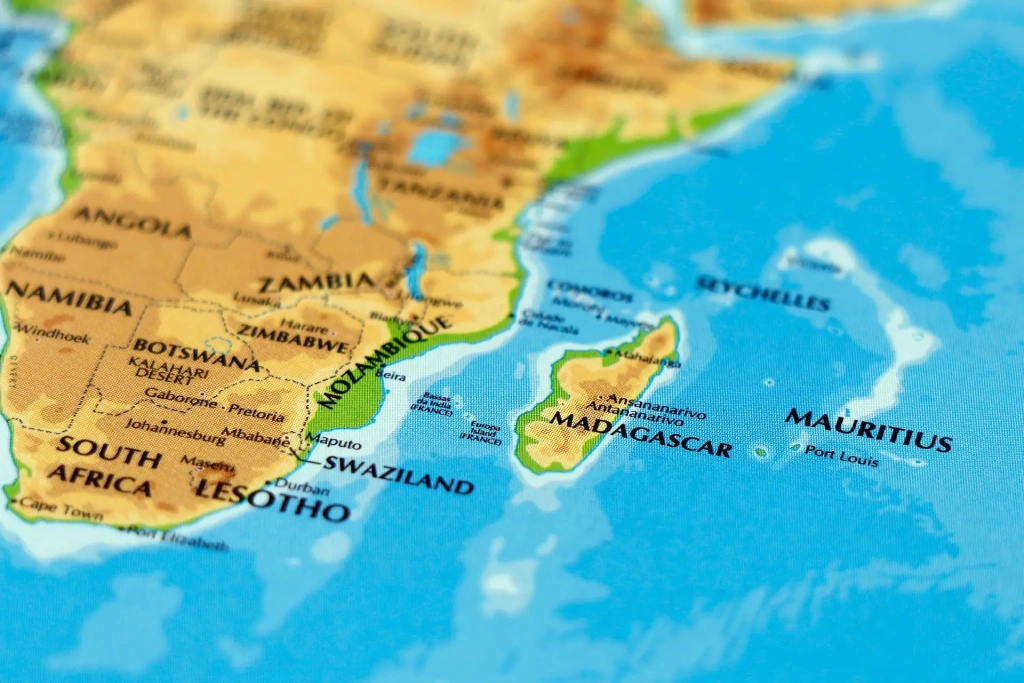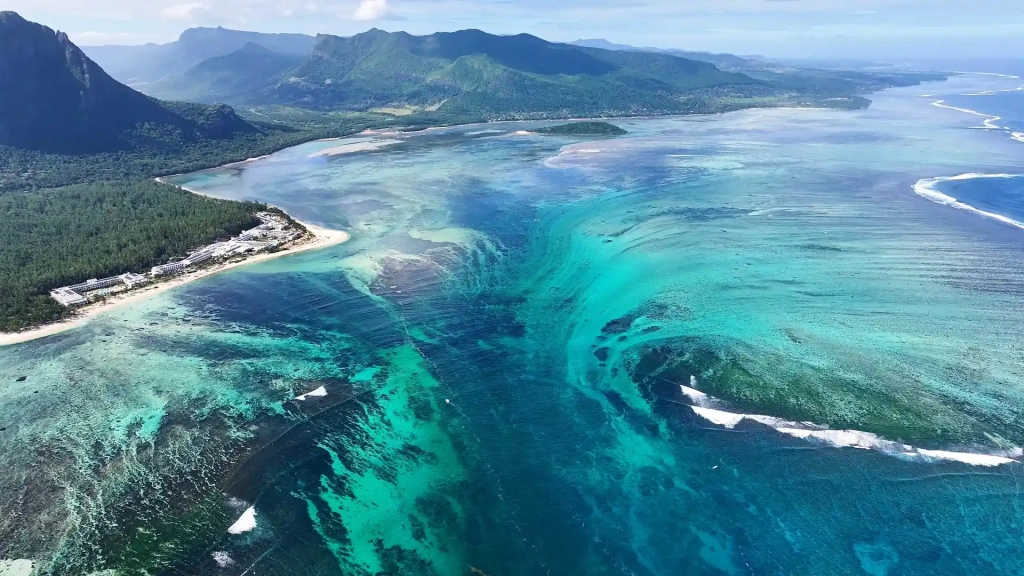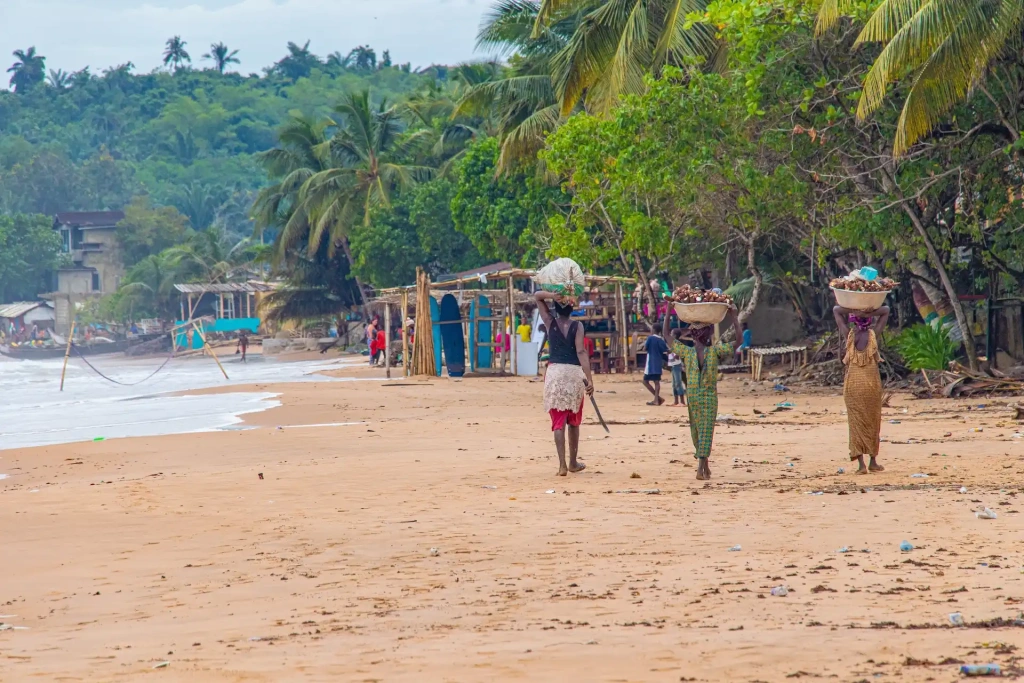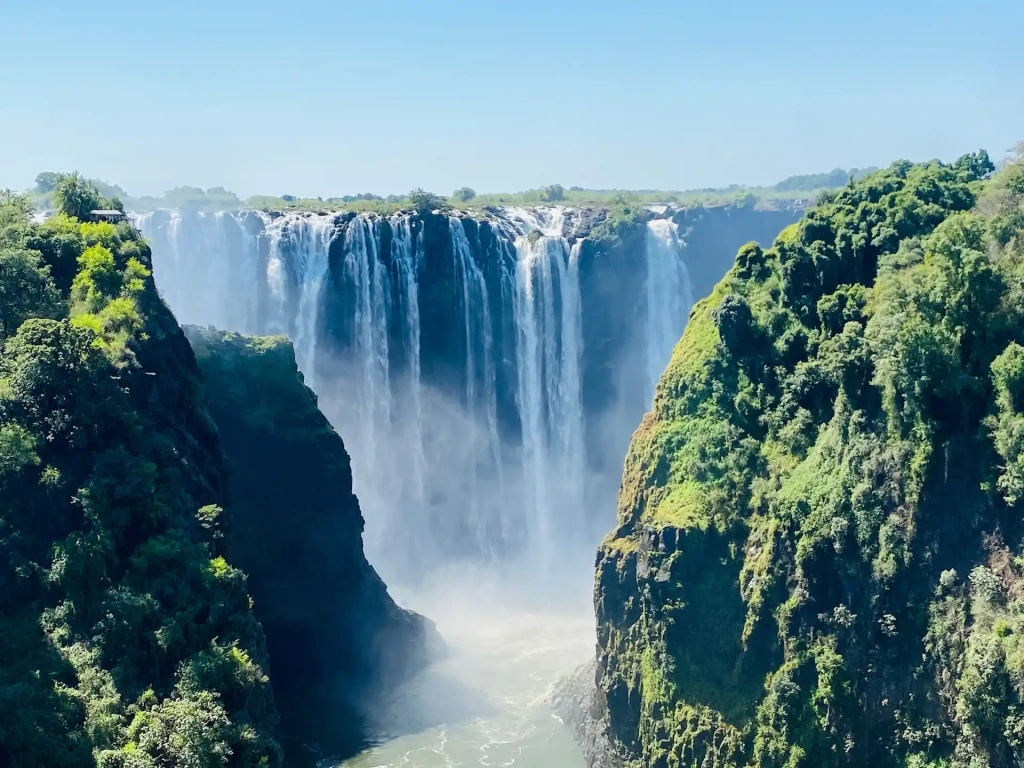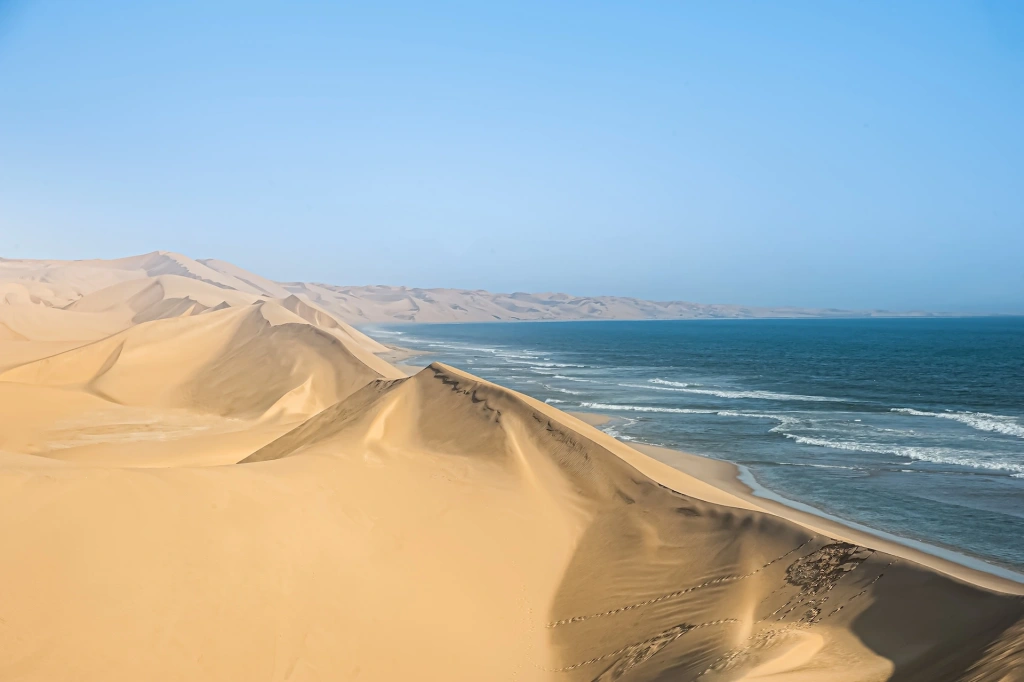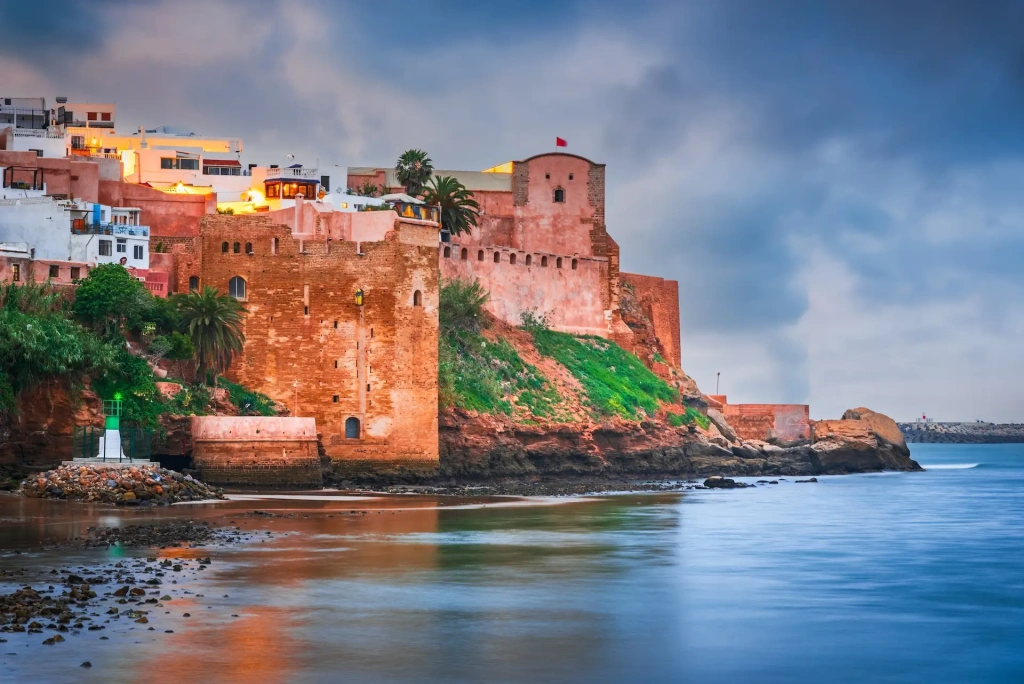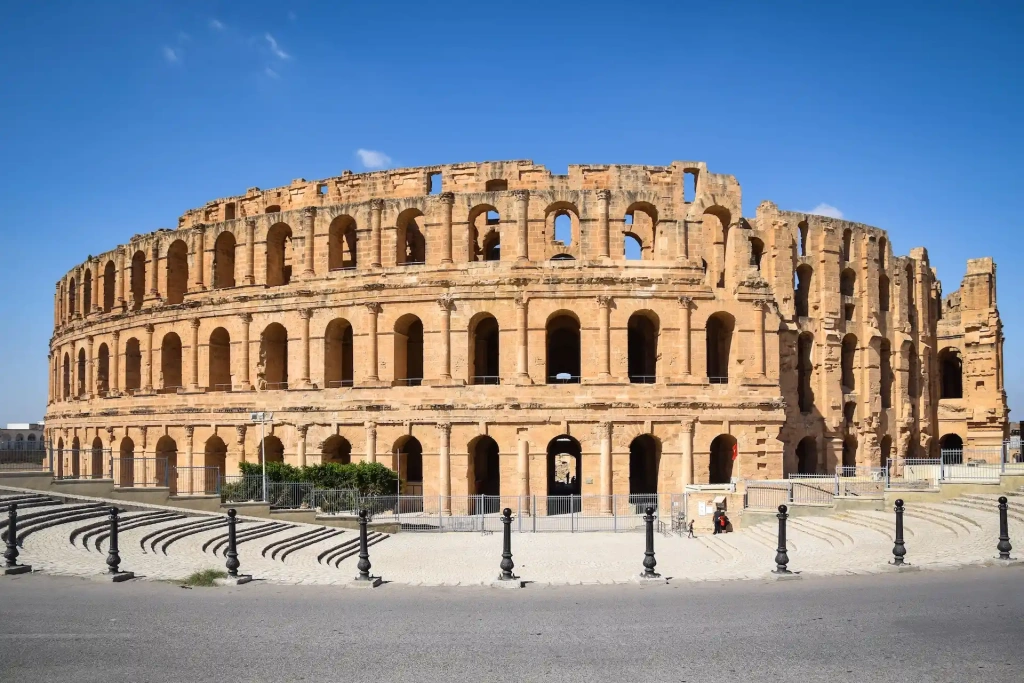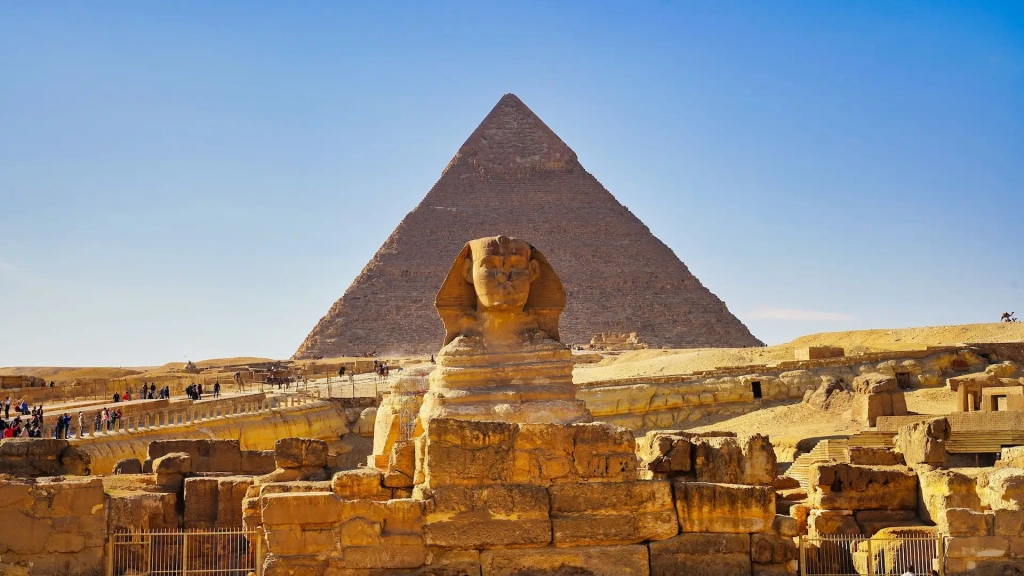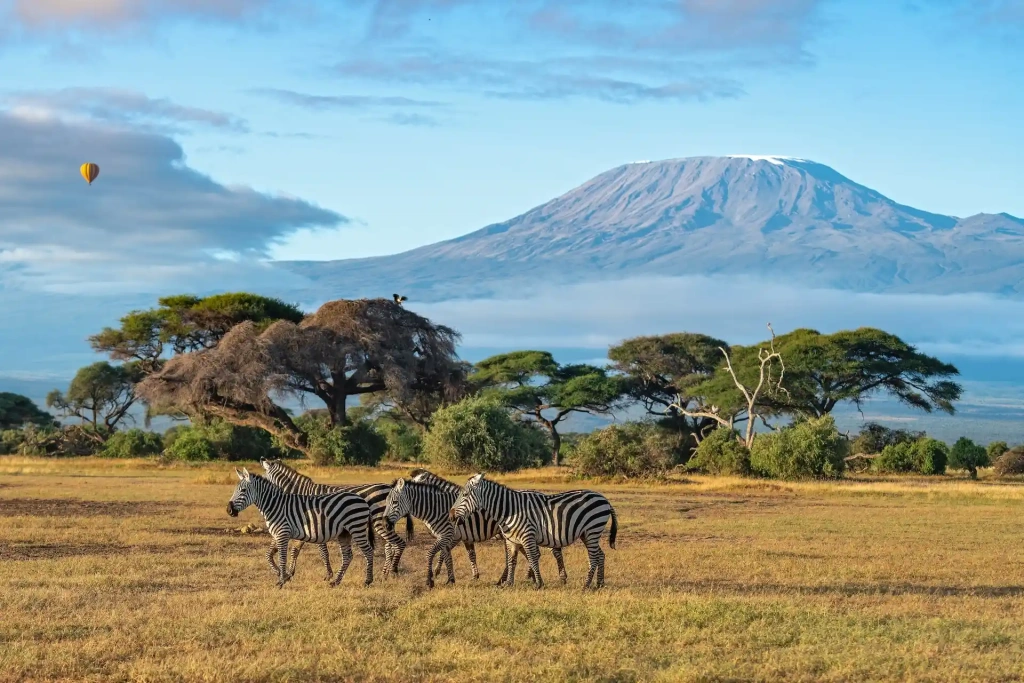Stereotypes often misrepresent Africa as a continent plagued by endless conflicts and instability. In reality, Africa is a diverse and complex region. For instance, Ghana has a lower crime rate than Canada or the US, Mauritius outperforms China in the Human Development Index, and Tanzania boasts a more peaceful population than France.
To provide a clearer picture, Altezza Travel's editorial team reviewed leading global studies from recent years, including official statistics and citizens' perceptions of personal safety. The result is a list of Africa's safest countries, going beyond the confines of heavily guarded tourist areas.
How we selected the safest countries in Africa
For each analytical report, we selected 7–10 leading countries and assigned each one point. The countries with the highest scores made this list. Our analysis was based on the following rankings:
- The Global Peace Index (GPI), developed by the Institute for Economics & Peace, assesses 163 countries, covering 99.7% of the global population. The index analyzes 23 indicators, including the level of societal safety, the scope of ongoing international and domestic conflicts, and the degree of militarization.
- The Global Terrorism Index (GTI) measures the number of attacks, casualties, and economic impact. Although we initially did not plan on using this index, one country’s numbers stood out. In 2023, for the first time in 13 years, Burkina Faso — a West African country — topped the list, with approximately 2,000 terrorism-related deaths. This figure accounts for nearly a quarter of all such fatalities worldwide.
- KOF Globalisation Index. Developed by the Swiss Economic Institute in 2002, it measures the economic, social, and political aspects of globalization. It considers the volumes of international trade, cultural exchanges, and political cooperation, reflecting how deeply a state is integrated into the global community.
- The Crime Index, created by Numbeo, collects and systematizes reliable information about the quality of life and socio-economic factors in cities and countries worldwide. It is based on surveys that assess the overall crime situation, including petty crime and violent crime, and the safety of walking around at different times of the day.
- Global Safety Report. Compiled by the American Institute of Public Opinion, founded in 1935 by sociologist George Gallup. It provides data on how safe people feel and how effective they perceive law enforcement to be.
- The Human Development Index (HDI), developed by the United Nations Development Programme, measures a country’s average achievements in key dimensions of human development: life expectancy, education, and per capita income. The index reflects overall well-being and quality of life in 193 countries.
1. Mauritius
Capital: Port Louis
Population: 1.3 million
This island nation in Southeast Africa is one of the safest on the continent. In the Global Peace Index, it surpasses the vast majority of countries worldwide, including Spain, Norway, Italy, the UK, Sweden, the USA, and many others. In the Terrorism Index, Mauritius is in the green zone with a score of 0.000, indicating the lowest level of threat.
It ranks 83rd out of 146 in terms of crime rate. Your risk of becoming a crime victim here is lower than in Britain, New Zealand, Sweden, or Belgium. Meanwhile, according to the Global Safety Report, the citizens of all the above-mentioned countries feel, by their own subjective assessments, safer than Mauritians do. As you might expect, the same dynamic can be seen in human development. However, Mauritius’s indicator is still higher than those of China, North Macedonia, Moldova, and India. Regarding globalization, the country is ahead of Turkey, Russia, and even Hong Kong.
What country is the safest in Africa?
According to the 2024 Global Peace Index, Mauritius is considered the safest country in Africa. However, this can vary depending on which metrics or ranking you look at. Factors like petty crime, political stability, and economic conditions all influence safety rankings.
2. Ghana
Capital: Accra
Population: 34.5 million
Along its coastline, Ghana borders the Atlantic Ocean, and on land, it neighbors Togo, Côte d’Ivoire, and the notoriously troubled Burkina Faso. Despite its location, Ghana is known for having an independent judicial system, multiparty democracy, and freedom of speech, including a free press.
In terms of the Global Peace Index, it surpasses Moldova, Bosnia and Herzegovina, France, China, and even Jamaica. In the Terrorism Index, it is among the countries with a zero score. Its crime rate is lower than in Canada, Greece, and Australia.
Regarding the Global Safety Report and the Human Development Index, Ghana lags behind all “first-world” countries yet outperforms the majority of African nations, including popular tourist destinations like Kenya, Ethiopia, and Madagascar (often romanticized in Hollywood).
Which country in Africa has the least crime?
According to the Numbeo Crime Index 2025, the top 3 countries with the lowest crime in Africa are Ghana, Rwanda, and Tunisia. However, crime can be difficult to measure, and rankings often depend on how crime is defined and reported. Different sources or indexes may rely on varying data collection methods, time frames, and survey approaches, leading to variations in their findings.
3. Zambia
Capital: Lusaka
Population: 21.1 million
Located in the southern part of the continent, Zambia has enjoyed political stability since gaining independence from Britain in 1964. Over the past decade, it has demonstrated high economic growth relative to many African countries, which is always directly reflected in domestic security levels.
Like Ghana, Zambia lags behind many leading Western and European countries in the Global Peace Index but remains close to the “top tier.” Notably, it outperforms popular travel spots like Thailand, Nepal, China, India, and even France.
Zambia ranks second lowest in the world for terrorism risk, and its crime rate is below that of Greece, Ireland, Italy, Australia, the UK, and other prosperous countries. In other rankings, Zambia also boasts higher positions than its neighbors on the continent.
4. Namibia
Capital: Windhoek
Population: 2.8 million
Welcome to Southern Africa. Namibia borders South Africa, Botswana, Angola, and Zambia. While its shared border with Zambia is just 247 km (153 mi), the two nations have a lot in common.
For example, Namibia only slightly trails Zambia in both the Peace Index and the Terrorism Index, surpassing most countries worldwide in both. According to the Global Safety Report, it outperforms Kenya and many of its neighbors. A similar picture is painted by the UN: the country’s human development is at a higher level than in Zambia, Nepal, Rwanda, and half of the nations in Africa, the Middle East, and Asia.
The 2024 presidential election is a good indicator of political and social stability. For the first time in history, the head of state is a woman — Netumbo Nandi-Ndaitwah.
5. Morocco
Capital: Rabat
Population: 39.2 million
The Kingdom of Morocco is known as the economic hub of the continent. It borders Europe, specifically Spain, across the Strait of Gibraltar. According to Global Finance, Morocco differs from most other African countries in terms of its stable political environment, developed financial markets, and infrastructure.
In the Peace Index, Morocco outperforms Nepal, France, China, and nearly a hundred other nations. Terrorism influence is zero, and its crime rate is lower than in the UK, New Zealand, Sweden, the United States, and other countries often considered benchmarks. A similar conclusion can be drawn from the Global Safety Report. In UN assessments, Morocco ranks among the leaders in Africa and the entire Eastern region.
6. Tunisia
Capital: Tunis
Population: 12.3 million
With direct access to Europe across the Mediterranean Sea, Tunisia consistently appears in various rankings of the safest and most developed African countries. On the peace scale, it leads Thailand, Nepal, France, China, Cyprus, and half of the globe, holding 73rd place overall. Its terrorist threat level is not zero, unlike some others on our list, but it’s still lower than that in Greece, the United States, Turkey, Kenya, or India.
Crime rates in Tunisia are relatively low, making it safer than Canada, Ireland, Italy, Australia, the UK, Sweden, or Belgium. As for human development, Tunisia’s position is not exactly triumphant, yet it still surpasses many popular tourist destinations such as Vietnam, Indonesia, the Philippines, India, and others.
7. Egypt
Capital: Cairo
Population: 112.7 million
Situated between the Middle East, Europe, and the rest of Africa, Egypt aims to become one of the world’s major international trade and investment hubs. As before, the country’s economy depends on oil and mineral exports. Recently, the government has been undertaking several megaprojects. These include expanding the Suez Canal, developing smart cities, and building new roads and other transportation infrastructure.
The Institute for Economics & Peace does not put Egypt in the most favorable positions: it’s 105th out of 163 in terms of peacefulness (still better than India, the United States, Turkey, and Ethiopia) and 20th for terrorism risk. It’s important to note, however, that researchers attribute this result not to internal problems or conflicts but largely to tensions in the Middle East.
In other aspects, Egypt aligns with the safest African countries already mentioned. Its crime rate is lower than in the UK, New Zealand, Sweden, the United States, Belgium, or France. In the Global Safety Report, Egypt also surpasses the Netherlands, Taiwan, Austria, Spain, Germany, Hong Kong, Japan, the Czech Republic, South Korea, and many more. In the UN Human Development Index, it outperforms Vietnam, Indonesia, the Philippines, Venezuela, Kenya, Ghana, Zambia, Morocco, Namibia, and India.
8. Tanzania
Capital: Dodoma (official capital), Dar es Salaam (economic and cultural center)
Population: 68.6 million
The United Republic of Tanzania is considered one of the most politically stable, safest, and most fascinating countries in Africa. The Republic has shown steady economic growth for two decades, driven by international trade, foreign investment, and tourism. The government emphasizes tourism, recognizing the country’s obvious advantages over other African destinations. Tanzania is known worldwide for its vast wildlife reserves, including Serengeti National Park and Ngorongoro Crater, the highest mountain on the continent, and its rich cultural heritage.
Every year, hundreds of thousands of travelers from around the world visit Tanzania for some of the best safari experiences on the planet, to climb the tallest mountain in Africa — Mount Kilimanjaro (5,895 meters/19,341 ft), to enjoy the white-sand beaches of Zanzibar, stroll through the colonial-era Stone Town, and relax on picturesque tropical islands. It’s also where you can witness the Great Migration of animals, see tree-climbing lions, and visit Lake Tanganyika — the second-deepest lake on Earth after Lake Baikal. From incredible African safari tours to tailored packages that include the best attractions the country can offer, Tanzania continues to grow in popularity among travelers.
With serious intentions to develop its tourism sector, the government invests significant resources into safety. In 2023, Tanzania moved up 11 positions in the Global Peace Index, now surpassing Thailand, Nepal, France, China, and almost 100 other countries. Its terrorist threat level is lower than in the UK, Germany, Russia, Greece, or even the United States. In fact, you’re far more likely to face crime in the Maldives, France, or Argentina.
While Tanzania is well-regarded for its natural beauty and tourism potential, the country still has room to improve in terms of human development. According to the most recent UN rankings, Tanzania holds 167th place out of 193 countries, surpassing only a few destinations that seldom appear in tour operator brochures.
All content on Altezza Travel is created with expert insights and thorough research, in line with our Editorial Policy.



Want to know more about Tanzania adventures?
Get in touch with our team! We've explored all the top destinations across Tanzania. Our Kilimanjaro-based adventure consultants are ready to share tips and help you plan your unforgettable journey.















